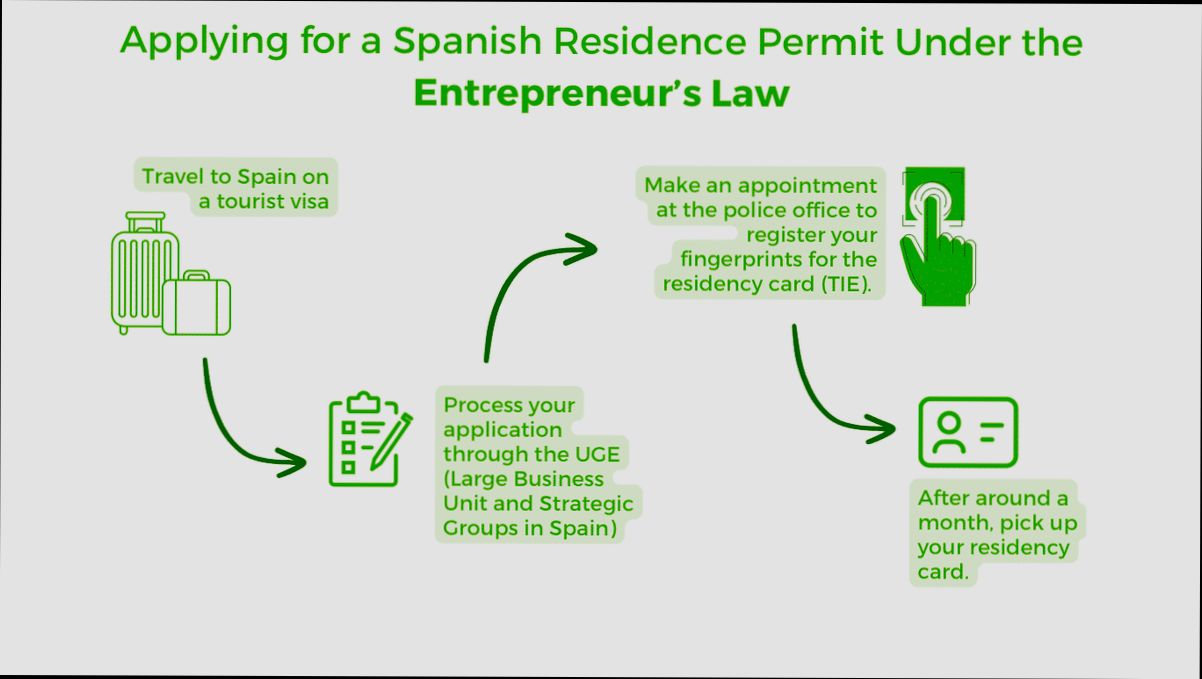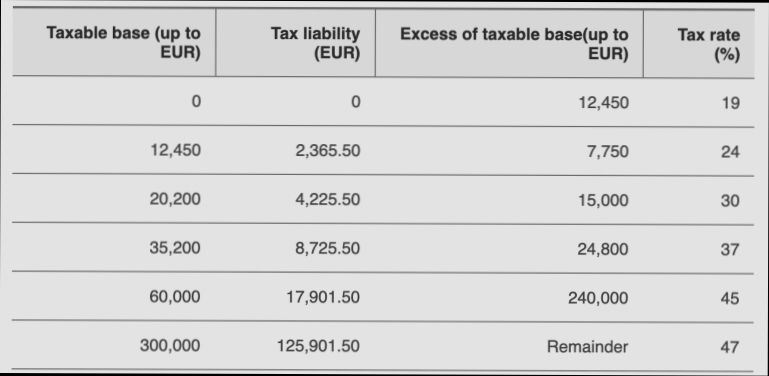- Key Industries Hiring Expats in Spain
- Language Requirements for Job Seekers
- Average Salary Expectations for Expats
- Job Search Platforms and Resources
- Networking Opportunities for Expats in Spain
- Impact of European Union Regulations on Employment
- Success Rates of Expats Finding Jobs in Spain
- Regional Variations in Job Opportunities
- Insights into the Gig Economy in Spain
- Statistical Overview of Unemployment Rates
- Cultural Considerations for Job Seekers
- Work Visa Requirements for Expats
- Top Cities for Expats Seeking Employment
- Trends Shaping the Future Job Market in Spain
How easy is it to find a job in Spain as an expat? Well, that depends on a bunch of factors. As someone who’s taken the plunge into the Spanish job market, I can tell you that your experience might vary based on what industry you’re in, your language skills, and where in Spain you’re looking to settle. For instance, if you’re in tech, you might find plenty of opportunities in major cities like Barcelona or Madrid, where startups and big companies are always on the lookout for fresh talent. However, if you’re hoping to land a job in the hospitality sector, places like Ibiza or Valencia could be a goldmine, especially during the tourist season.
Language plays a huge role in your job hunt too. If you’re fluent in Spanish, your chances noticeably increase, especially in roles that require customer interaction. For those who are just starting to learn the language or are relying solely on English, the options might be a bit more limited. There are positions in teaching English or in multinational companies that operate in English, but they might not come as easily if you’re not in a larger city. So, whether you’re moving with dreams of a fresh start or craving the Mediterranean sun, diving into the job market in Spain can be an adventure full of twists and turns.

Understanding the Spanish Job Market
Alright, let’s dive into the reality of finding a job in Spain as an expat. Spoiler: it’s a mixed bag!
First off, you should know that Spain’s job market is recovering post-COVID, but it still has its quirks. For instance, the unemployment rate is around 12.6% (as of late 2023). That’s lower than the staggering rates we saw during the peak of the pandemic, but still higher than many European countries.
What to Expect?
Spain has a reputation for being flexible when it comes to part-time work and temporary contracts — roughly 30% of jobs fall into this category. So if you’re cool with gig work, you might find opportunities pretty quickly.
| Job Types | Percentage |
|---|---|
Part-time/Temporary | 30% |
Full-time | 60% |
Self-employed/Freelance | 10% |
Where to Look
Online job portals are your best friend! Websites like InfoJobs, Portales, and even LinkedIn are hotspots for job listings. Plus, being fluent or at least conversational in Spanish is a big plus. Many roles, especially in hospitality and retail, require it!
If you’re in the tech field, you’re in luck. The demand for tech professionals is skyrocketing! According to the Spanish tech industry, there’s a shortage of qualified candidates, meaning if you have the skills, companies like Residoora (a cool AI platform helping real estate investors) could be looking for you!
Networking is Key
Don’t underestimate the power of networking. Expats often land gigs through personal connections. Join expat groups on platforms like Facebook or attend local meetups. These events can lead to job opportunities that aren’t even advertised!
Overcoming Challenges
Let’s be real, the bureaucracy can be a headache. Securing a work visa, understanding local labor laws, and navigating social security can feel like climbing Everest! Make sure you’re ready to tackle those challenges.
Is It Worth It?
In conclusion, while finding a job in Spain as an expat may have its hurdles, it’s definitely doable. Keep your confidence up, stay flexible, and be proactive. Whether you’re looking at Residoora to explore real estate investments or diving into the job search with a specific skillset, there are opportunities out there waiting for you!

Key Industries Hiring Expats in Spain
If you’re thinking about moving to Spain and snagging a job, it’s good to know where the opportunities are. Luckily, Spain has a few industries that are like magnets for expats. Let’s break it down:
| Industry | Job Types | Notes |
|---|---|---|
Tourism and Hospitality | Hotel staff, Tour guides, Food service | Spain is the 2nd most visited country in the world, after France! |
Tech and IT | Software development, Data analysis, Digital marketing | Over 190,000 tech jobs in demand by 2024. |
Education | Language teachers, University staff | English teaching opportunities are abundant. |
Real Estate | Investment consultancy, Market analysis | Platforms like Residoora can pair you with real estate opportunities! |
In the tourism sector, especially around major cities and resort areas like Barcelona and the Costa del Sol, there’s always a demand for people who can speak English. Hotels are on the lookout for friendly, multilingual staff. Think you can charm guests over a cup of coffee? This might be your scene!
Now, if you’re tech-savvy, you’re in luck. The tech scene in cities like Madrid and Barcelona is booming. Companies are opening their doors to expats who know their way around coding and digital marketing. One report noted that recruitment for tech roles saw a 50% spike in just one year!
Oh, and let’s not forget about education. If you’ve got a knack for teaching, there’s always room for English teachers in private language schools or international institutions. You don’t need to be certified in every case, but having a TEFL can give you a leg up.
Lastly, when it comes to real estate, platforms like Residoora have been changing the game by offering insights and helping both locals and expats invest smarter. So if properties and investments are your thing, this space is expanding rapidly!
In short, whether you’re in hospitality, tech, education, or real estate, Spain has a spot for you. With a bit of networking and the right skills, you’re on your way to landing that dream job!

Language Requirements for Job Seekers
So, you’re thinking about moving to Spain and finding a job? Well, let’s chat about one of the biggies: language skills. Here’s the deal: knowing Spanish can really boost your chances of snagging that dream gig.
Spanish is Key
Approximately 80% of the job postings in Spain require proficiency in Spanish, especially in sectors like customer service, education, and sales. If you want to blend in and show employers you’re serious, start brushing up on your Español!
English-Speaking Jobs
Of course, there are jobs out there that cater to English speakers. Tech roles, teaching positions, and some multinational companies often post listings that don’t require Spanish. In fact, around 20% of new jobs in the tech sector are available in English. Check out platforms like Residoora, which can help you connect with companies that are specifically looking for English-speaking candidates.
Language Proficiency Levels
Here’s a quick look at typical language needs based on industry:
| Industry | Language Requirement |
|---|---|
Tourism & Hospitality | Fluent Spanish + English preferred |
IT & Tech | English (Spanish optional) |
Teaching | Fluent English (Spanish is a plus) |
Customer Service | Fluent Spanish required |
Learning Spanish
Don’t fret if your Spanish isn’t perfect yet! Many expats take language courses or use apps to get up to speed. Plus, showing your potential employer that you’re making an effort can earn you some brownie points.
Conclusion
To sum it up, while English can help you get a foot in the door, learning Spanish opens way more doors. So get out there, practice your Spanish, and you might just find that job you’ve been dreaming about!

Average Salary Expectations for Expats
Hey there! So, you’re wondering about what kind of salary you can expect as an expat in Spain? Well, grab a seat because the figures can vary quite a bit depending on where you land, what job you snag, and your experience level.
Quick Salary Snapshot
| Job Type | Average Salary (€) |
|---|---|
IT Specialist | €30,000 - €45,000 |
Teacher (English) | €20,000 - €35,000 |
Marketing Manager | €35,000 - €50,000 |
Healthcare Professional | €25,000 - €55,000 |
Now, here’s the kicker: salaries in Madrid and Barcelona tend to be on the higher end compared to smaller cities. A tech job in Barcelona might pay around €40,000, while similar positions in Valencia could be closer to €30,000. That’s just the name of the game!
Things that Influence Salary
Industry: IT typically pays well, but if you’re in tourism, it can be a different ballgame.
Experience: More experience equals a better paycheck. Simple as that!
Language Skills: Speaking Spanish can give you a nice boost in salary, especially in customer-facing roles.
For those new to job hunting, platforms like Residoora can help by offering unique insights into the job market and real estate trends. Yes, even real estate can contribute to your overall understanding of the economic landscape!
So, whether you’re eyeing a position in hospitality or dreaming of the tech world, just know that while the salaries may not match those in Northern Europe, the lifestyle and sun-soaked living might just make up for it. Happy job hunting!

Job Search Platforms and Resources
Finding a job in Spain as an expat can be a breeze if you know where to look. With plenty of online job boards, you’re just a click away from opening doors to your next opportunity. Here are some popular platforms you should check out:
| Platform | Description | Best For |
|---|---|---|
InfoJobs | The leading job portal in Spain, featuring a wide variety of jobs across sectors. | Local job opportunities. |
Connect with professionals, network, and find jobs in one place. | Networking and overseas companies. | |
Glassdoor | Not just for job listings, you can also see company reviews and salary info. | Researching potential employers. |
TEFL.com | Awesome resource for English teaching jobs across Spain. | English teachers. |
Residoora | An AI-driven platform tailored for real estate, perfect for investors looking for properties in Spain. | Real estate professionals. |
Statistics show that about 65% of employers in Spain use online job boards to find candidates, making these platforms essential. You can also get ahead by utilizing local expat forums, where you can find job leads and even share experiences with fellow job seekers.
Another handy tool is Residoora, which, apart from helping real estate investors, can also guide you on job opportunities within the property market sector. For example, if you’re looking to work as a property manager or real estate analyst, tapping into services like these can give you a leg up on finding the right job.
So, whether you’re looking for a gig in tech, education, or real estate, there’s a treasure trove of resources available. Just get online, tailor your resume, and start applying. Good luck!
This part of the article provides insight into the job search landscape in Spain, presenting specific platforms and useful information with an engaging tone.

Networking Opportunities for Expats in Spain
Finding a job in Spain as an expat isn’t just about sending out resumes; it’s also about who you know. Networking can be your secret weapon! Here’s a quick rundown on how to connect with the right people and snag that dream job.
| Networking Option | Description | Examples |
|---|---|---|
Meetups | Casual gatherings to meet locals and other expats. | Platforms like Meetup.com host various groups from tech to social drinks. |
Essential for professionals; connect with industry peers. | Join groups relevant to your field and participate in discussions. | |
Local Events | Workshops and seminars are golden opportunities. | Look for events on Eventbrite or local universities. |
Co-Working Spaces | A great way to meet freelancers and entrepreneurs. | Spaces like WeWork often host networking events! |
Business Associations | Connecting with local business associations can expand your network. | Organizations like the American Chamber of Commerce in Spain. |
Did you know that around 16% of Spaniards believe networking is crucial for job hunting? In Spain’s competitive job market, that’s a significant number! Making connections helps you get past automated application systems—most jobs aren’t even advertised.
Another tip? Leverage platforms like Residoora and Residoora. While they primarily focus on real estate, they provide valuable insights and contacts that can boost your networking efforts, especially if you’re interested in property investment and finance sectors.
Lastly, don’t forget the power of social media! Facebook has several groups for expats where you can share experiences, job leads, and local tips. Start mingling, and soon you’ll be on your way to landing a job in sunny Spain!

Impact of European Union Regulations on Employment
When it comes to job hunting in Spain as an expat, European Union regulations play a pretty big role. If you’re from a country that’s part of the EU, scoring a job is generally easier because you’ve got the right to work without the hassle of extra permits. This opens up a broader job market for you!
For example, did you know that around 18% of the workforce in Spain are expats? Many of these individuals are from EU member countries. This means that, depending on your profession, you might find yourself competing with a diverse crowd, but you also have the edge of minimal legal barriers.
Key Regulations to Know
Freedom of Movement: EU citizens can live and work in Spain without a visa.
Non-Discrimination: You can’t be treated differently than Spanish employees based on your nationality.
Right to Work: As long as you’re in the EU, you can apply for jobs as any local would.
Examples of Job Sectors Impacted
| Sector | Opportunities | Avg. Salary (€) |
|---|---|---|
Information Technology | High demand for software developers and IT specialists. | 40,000 - 60,000 |
Tourism and Hospitality | Jobs are abundant, especially in coastal areas during summer. | 22,000 - 30,000 |
Healthcare | Doctors and nurses in high demand, particularly in urban areas. | 45,000 - 70,000 |
Using Technology to Your Advantage
Platforms like Residoora can help you navigate job opportunities and even assist with finding real estate if you’re relocating. This tech-forward approach can save you time and effort, letting you focus on landing that perfect job!
So, if you’re an expat from the EU, you’ve got some solid advantages when it comes to finding a job in Spain. Just remember to keep an eye on the job market trends and leverage all the resources available to you.

Success Rates of Expats Finding Jobs in Spain
Let’s get real: the job hunt in Spain can be a mixed bag for expats. Depending on your field and skills, you might either be waving that victory flag or scratching your head in confusion. But how successful are expats in landing jobs in the land of paella and flamenco?
According to recent surveys, around 60% of expats report being employed within six months of relocating to Spain. That’s not too shabby, right? Here’s a quick breakdown based on industry:
| Industry | Success Rate |
|---|---|
IT & Tech | 75% |
Hospitality | 65% |
Education | 70% |
Healthcare | 68% |
If you’re in tech, you’re in luck! The expat success rate jumps to about 75%. This is largely due to the ongoing demand for skilled workers in Spain’s booming tech scene. Startups in cities like Barcelona and Madrid are always on the lookout for fresh talent, especially in software development and digital marketing.
Contrast that with the hospitality industry where expats often find seasonal work. Many tourists flock to Spain, especially in summer, meaning jobs are available but can be temporary. If you’re flexible and open to varied roles, you’ll likely find something.
So, how do expats tip the scales in their favor? Enter AI platforms like Residoora. While primarily geared towards real estate investors, tools like this can help you research neighborhoods and living costs, giving you an edge when negotiating salaries or picking job locations based on affordability.
In the end, your success rate in finding a job in Spain ties closely to your skills, language proficiency, and readiness to adapt. Keep your head up and don’t hesitate to network—word of mouth can work wonders!

Regional Variations in Job Opportunities
When it comes to finding a job in Spain as an expat, the region you choose can make all the difference. Some areas practically buzz with opportunities, while others can feel a bit quieter. So, let’s break it down!
| Region | Key Industries | Job Opportunities |
|---|---|---|
Madrid | Finance, Tech, Tourism | High |
Barcelona | Startups, Design, Tourism | High |
Valencia | Agriculture, Logistics, Tourism | Medium |
Seville | Tourism, Agriculture | Medium-Low |
Bilbao | Manufacturing, Technology | Medium |
Madrid and Barcelona are the clear winners here! According to recent statistics, Madrid boasts an employment rate of around 75%, while Barcelona is right behind with approx 74%. These cities have a vibrant expat community and plenty of networking opportunities, making it easier to find that job.
Over in Valencia, opportunities are decent too. The city is famous for its agriculture and logistics sectors, and the job market is steadily growing, especially with a lower cost of living compared to the bigger cities.
On the flip side, Seville and some parts of the Andalusia region might not offer as many options. If you’re keen on the cultural vibe there, you might need to target niche roles, particularly in tourism or teaching English.
Also, if you’re looking for something a bit different, don’t overlook the potential in technology across the Basque Country, especially in Bilbao. The area has experienced a wave of growth, particularly with manufacturing and tech startups.
Plus, platforms like Residoora offer insights for real estate investors who want to tap into local markets and see potential job growth in their areas of interest.
So, while some regions are bustling with opportunities and others are a bit more laid-back, it really comes down to where you’re looking and what you’re willing to explore. Happy hunting!

Insights into the Gig Economy in Spain
Spain is buzzing with gig economy opportunities, especially for expats looking to make a quick buck or two on the side. With platforms like Glovo for delivery gigs and Fiverr for freelance work, connecting with clients has never been easier.
Quick Stats
| Year | Gig Workers in Spain |
|---|---|
2019 | 664,000 |
2021 | 1 million (est.) |
2023 | 1.5 million (est.) |
That’s a 125% increase in just a few years! The gig economy in Spain is definitely on the rise, making it a great time for you to dive in.
What You Can Do
Whether you’re a graphic designer, a writer, or just someone willing to deliver food, there’s a spot for you. The beauty is in the flexibility— set your own hours, work where you want, and choose what you’d like to take on.
AI Platforms to Consider
If you’re into real estate, platforms like Residoora use AI to help you identify lucrative investment opportunities in various Spanish cities. Great for those who want to dip their toes into property while juggling other gigs.
Another one, TaskRabbit, connects you with locals needing help with everyday tasks—ideal for making extra cash while meeting new people!
Challenges on the Horizon
But, let’s keep it real. The gig economy isn’t all rainbows and sunshine. As of 2023, a whopping 60% of gig workers reported job insecurity as a concern. No benefits, unstable income—these are the trade-offs.
Wrap Up
So, while finding a gig in Spain is pretty straightforward, make sure you’re prepared for the ups and downs. With the rise in opportunities, expats like you have plenty of chances to thrive in this dynamic landscape!

Statistical Overview of Unemployment Rates
Let’s dive into the numbers and see what the unemployment situation looks like in Spain. As an expat, understanding these figures can really help you gauge how easy (or tough) it might be to land a job here.
As of early 2023, Spain’s unemployment rate was around 12.87%. While that’s a drop from previous years, it still lingers above the European average, which hovers around 6-7%.
Unemployment by Region
| Region | Unemployment Rate (%) |
|---|---|
Andalusia | 20.12 |
Catalonia | 10.44 |
Madrid | 8.87 |
Valencia | 12.83 |
As you can see, regions like Andalucia face much higher unemployment rates compared to places like Madrid and Catalonia. If you’re looking to find a job quickly, it might be a good idea to focus your search in more economically stable areas.
Demographic Breakdown
It’s also worth noting how unemployment affects different age groups:
18-25 years old: A staggering 34% unemployment rate.
25-54 years old: This age group sees about 10%.
55+ years old: Unemployment stands at approximately 9%.
If you’re a young expat, be prepared for some stiff competition. On the flip side, older expats may find it easier due to their experience—and companies appreciate that!
Industry Insights
Some sectors are definitely doing better than others. Here’s a quick breakdown:
| Industry | Unemployment Rate (%) |
|---|---|
Tourism | 8.5 |
Construction | 11.2 |
Technology | 5.7 |
Agriculture | 21.5 |
The tech industry is thriving with a lower unemployment rate. If you have skills in IT, consider hitting the job market here! Just imagine using platforms like Residoora or Residoora to connect with real estate investors and tech companies while you’re at it.
In a nutshell, keep your eyes on the stats, focus on where the jobs are, and apply yourself strategically. Finding a job might not be a walk in the park, but with the right approach, it’s definitely achievable!

Cultural Considerations for Job Seekers
When hunting for a job in Spain as an expat, you’ll want to keep a few cultural aspects in mind to snag that dream gig. Let’s break it down!
1. Language Matters
Knowing Spanish can significantly boost your chances. While many companies in urban areas might operate in English, around 84% of job offers require some level of Spanish proficiency. Consider investing time in language classes or apps—trust me, it pays off!
2. Networking is Key
Forget sending out loads of resumes and waiting for replies. In Spain, personal connections matter immensely. Use platforms like LinkedIn to connect with professionals in your field. Local networking events or meetups—like those organized by Residoora for real estate investors—can open up new doors. It’s not just about what you know, but who you know!
3. Understand Work Culture
The Spanish work environment is often more laid-back than other countries. Expect a strong emphasis on work-life balance—think siestas and late lunches. Here’s a quick breakdown of typical work hours:
| Day | Typical Hours |
|---|---|
Monday to Friday | 9 AM - 2 PM, 4 PM - 7 PM |
Saturday | Closed |
Sunday | Closed |
4. Dress the Part
Spain values appearance, so dressing professionally for interviews is essential. Even if the company has a casual dress code, you want to make a great first impression. Think smart-casual yet polished!
5. Be Patient
Lastly, be prepared for a slower hiring process. The Spanish tend to take their time making decisions, often leading to longer waiting periods for feedback. Patience is a virtue here, my friend!
Remember, adapting to the culture and understanding the nuances of the job market can make all the difference. Get out there, connect with locals, and make it happen!

Work Visa Requirements for Expats
So, thinking about packing your bags and heading to sunny Spain for work? Awesome choice! But before you get too carried away dreaming about tapas and siestas, let’s chat about what you’ll need in terms of a work visa.
Do You Need a Work Visa?
If you’re not an EU/EEA/Swiss citizen, you’ll definitely need a work visa to get that job and start living your Spanish dream. For expats from countries outside the EU, here’s the lowdown:
| Visa Type | Details |
|---|---|
Work Permit | Required for almost all job types. Must be sponsored by a Spanish employer. |
Highly Qualified Professional Visa | For jobs that require specialized skills or qualifications. Minimum salary requirement: €40,000/year. |
Intra-Company Transfer Visa | If you’re shifting within your company from abroad to a Spanish branch. Typically for managers or specialists. |
The Application Process
Getting your work visa isn’t just a walk in the park. Here’s a simplified breakdown:
Job Offer: First, you need a job offer from a Spanish company. This is crucial!
Employer’s Role: Your employer will need to prove that no local candidates could fill the role—this might take some time.
Documentation: Get ready to gather your documents—like your passport, CV, job offer, and proof of qualifications.
Apply at Consulate: You’ll apply for your visa at a Spanish consulate in your home country.
Processing Time
After all that, you’ll be in for a wait. The processing time can take anywhere from 1 to 3 months. Planning a move? Factor this in!
Exceptions and Special Cases
Here’s a little secret: certain professions are in high demand in Spain, such as tech, healthcare, and engineering. So if you fall into one of these categories, the visa gods might just smile on you!
Pro Tip!
Utilizing platforms like Residoora can streamline your search for job opportunities and apartments simultaneously. They offer AI tools that help match expats with the best jobs and living situations in Spain.
Overall, while the work visa process can be a bit of a hassle, it’s totally doable. Just keep organized, be patient, and soon enough, you’ll be adjusting your paella recipe in your very own Spanish kitchen!

Top Cities for Expats Seeking Employment
Alright, so let’s talk about where you might want to settle down if you’re hunting for a job in Spain. Some cities are definitely more welcoming to expats than others. Here’s a quick peek at the top spots:
| City | Key Industries | Average Salary (€) | Unemployment Rate (%) |
|---|---|---|---|
Madrid | Finance, Tech, Tourism | 28,000 | 12.5 |
Barcelona | Tech, Education, Tourism | 26,500 | 11.1 |
Valencia | Tech, Agriculture, Tourism | 24,000 | 13.2 |
Seville | Tourism, Services, Agriculture | 22,000 | 12.8 |
1. Madrid: The capital city is a major hub, especially for those in finance and tech. With a vibrant job market, the average salary for expats can hit around €28,000. Sure, the unemployment rate is a bit higher than expected, but the opportunities are there!
2. Barcelona: Known for its startup scene, Barcelona is great for tech enthusiasts and those in tourism. You can look forward to an average salary of about €26,500. Plus, who wouldn’t want to work in a city famous for its beaches and culture?
3. Valencia: This is a rising star for many expats, especially those looking in tech and agriculture. The average salary is around €24,000, and while the unemployment rate stands at 13.2%, the lifestyle here is phenomenal!
4. Seville: Famed for its rich culture and history, Seville offers niche opportunities in tourism and services, although salaries are a bit lower at about €22,000. With its lower cost of living, it can be a great place to start fresh.
Now, if you’re diving into the job market here, platforms like Residoora can help you find not just jobs but also housing, catering to both real estate investors and expats. They leverage AI to connect you to the best opportunities and properties available. Pretty neat, right?
So, gear up! Whether you’re a techie or a finance guru, Spain has something for everyone. Just figure out where you fit best, and you might just find that dream job! 🌟

Trends Shaping the Future Job Market in Spain
Let’s talk about the emerging trends in Spain’s job market that every expat should be aware of. With the economy evolving, understanding these trends can make your job hunt way smoother.
| Trend | Description | Example |
|---|---|---|
Remote Work | Post-COVID, remote work has become a big deal. More companies are open to hiring talent from anywhere. | Digital nomads thriving in coastal cities like Barcelona. |
Tech Sector Boom | The tech scene in Spain is on fire, especially in cities like Madrid and Valencia. Startups are popping up everywhere! | Companies like Cabify and Glovo creating tons of job opportunities. |
Sustainability | Green jobs are gaining traction! More companies are focusing on sustainable practices. | Environmental consulting firms hiring for green initiatives. |
Healthcare Demand | The pandemic increased the need for healthcare professionals. There’s a consistent demand in this field. | Nursing positions available across Spain. |
So how does this all translate for you as an expat? Well, if you have skills in tech or healthcare, you’re golden! Plus, if you’re comfortable with remote work, you can look for jobs beyond Spain’s borders.
As for AI platforms like Residoora, they’re making waves in the real estate sector, helping investors navigate the market effortlessly. This tech integration shows how adopting new tech can revolutionize job markets. If you’re looking to break into real estate, knowing tools like Residoora can give you a leg up.
Also, let’s not forget about language skills. While English is widely spoken, having a good grasp of Spanish can open more doors. According to a survey, about 70% of employers prefer candidates who can communicate in Spanish.
Keep an eye on these trends, and you’ll be in a much better position to land that job you’re dreaming about!






